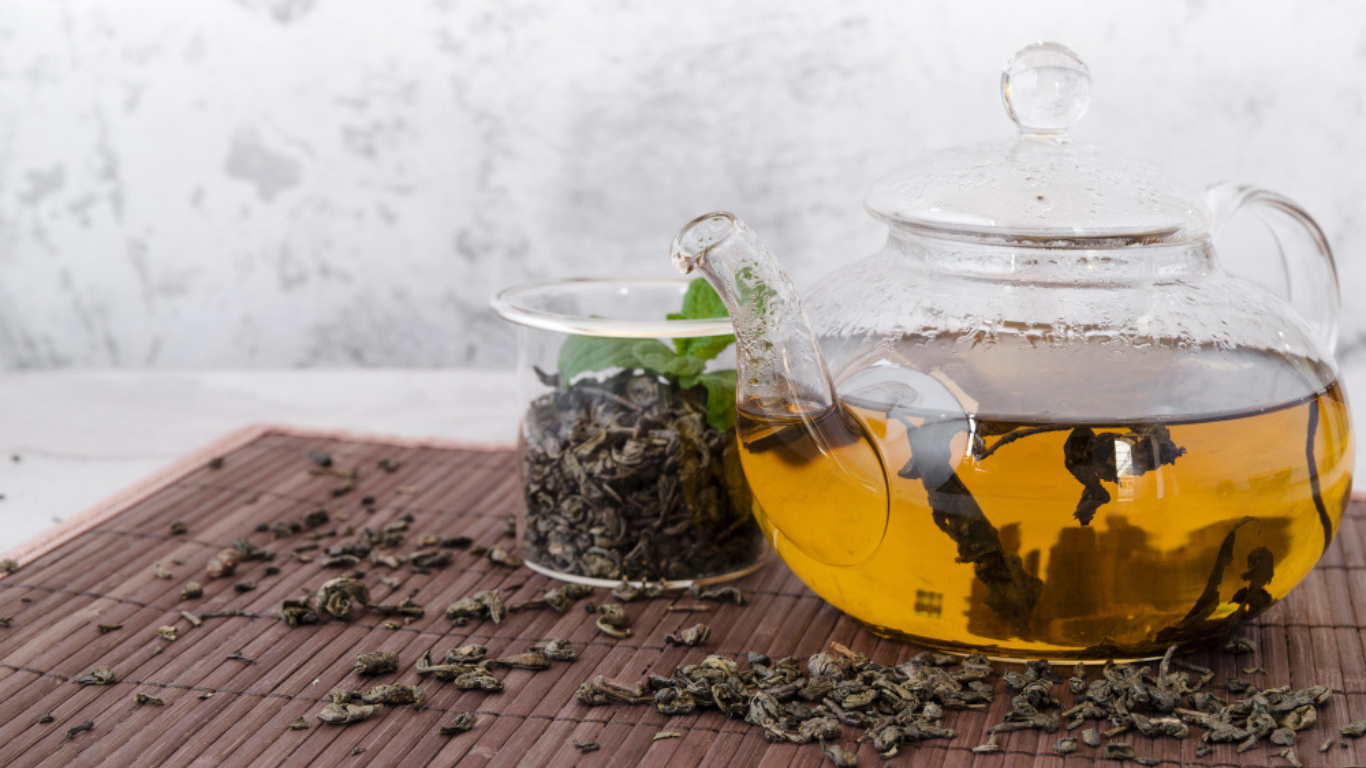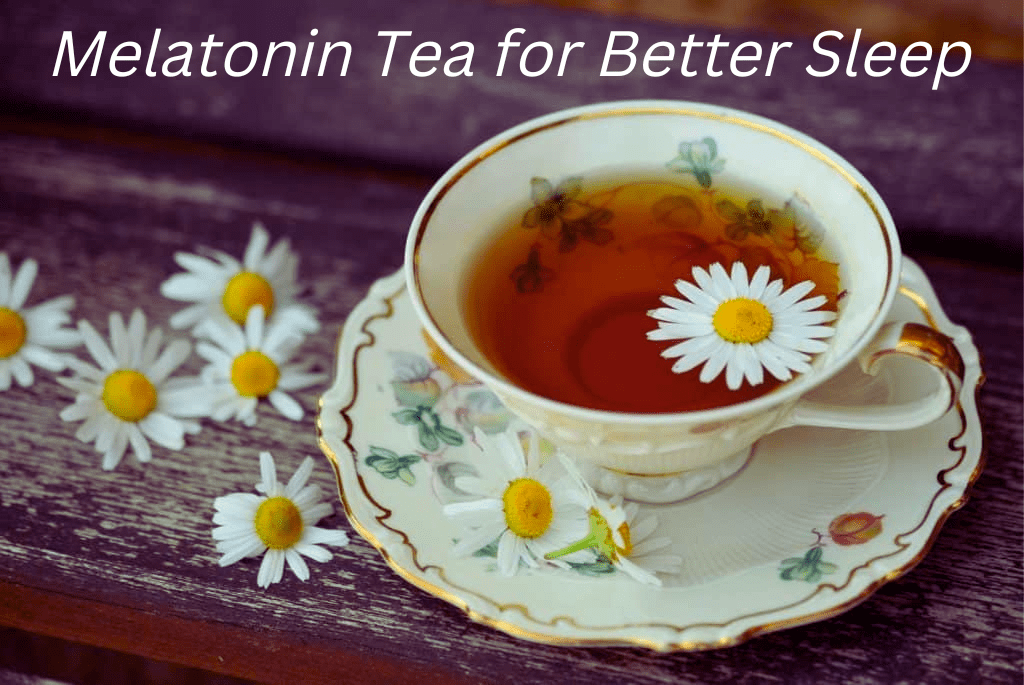10 healthy herbal teas you should try


Tanvir Ferdous
Table of Contents
10 healthy herbal teas you should try
Introduction
Looking to stay healthy but tired of plain old water? Start sipping on some herbal teas! From calming chamomile to energizing ginger, herbal teas can help you stay healthy and refreshed. Read on to learn about 10 healing herbal teas you should give a try.
What are Herbal Teas
Herbal teas are a type of tea made from herbal plants, trees, and other plant materials that have been used for centuries to promote health and well-being. They are becoming increasingly popular as people look for new ways to support their health naturally. Herbal teas offer a variety of unique benefits and can be enjoyed both hot or cold.
Benefits of Herbal Teas
Herbal teas are a great way to boost your daily health and wellness routine. They offer many different benefits, including improved digestion, better sleep, improve brain health and increased energy levels. Herbal teas have been used for centuries in various cultures as a natural remedy for ailments. While they can’t replace traditional medicine, herbal teas are a gentle and natural way to improve overall well-being.
Different Types of Herbal Teas
Herbal teas have been around for centuries and are still popular today. Whether you’re looking to relax, destress or just enjoy a delicious cup of something warm, herbal tea can provide the perfect solution. With numerous varieties to choose from, there’s no shortage of flavourful combinations and health benefits that come with each variety. From minty freshness to rich and spicy flavours, herbal teas can offer something for everyone.
10 healthy herbal teas you should try
It is hard to pick only 10 healthy herbal tesa. Every herbal teas have unique flaver and health benifits. We describe most common teas and their advantage.
1. Chamomile Tea
Chamomile tea is a popular herbal tea known for its comforting and relaxing properties. Studies have shown that it can help reduce anxiety, improve sleep and even lower blood sugar. It is said to have a mild flavor and aroma similar to apples or sweet straw dust. A cup of chamomile tea is made by steeping 1-2 teaspoons of dried chamomile flowers in hot water for 10 minutes. It’s best enjoyed without milk or sweetener. Drinking chamomile tea regularley may help reduce the risk of chronic diseases such as diabetes, cancer, heart disease, stroke and chronic inflammation.
Chamomile tea also contains several beneficial vitamins like Vitamin A, Vitamin B6, Vitamin C and Vitamin K which are essential for healthy bones and teeth along with maintaining healthy looking skin. In addition to these vitamins it also contains important minerals like magnesium, potassium and phosphorus which help build strong bones in the body as well as aiding muscle tissue regeneration throughout the body making this an ideal choice of beverage if you want something to endure you through a good workout session!
2. Peppermint Tea
Peppermint tea is derived from the leaves of the peppermint plant, which can be found in many parts of Europe and North America. Peppermint is a hybrid plant, an offspring of water mentha and spearmint. It has a rich green color and an aroma that mixes herbal and minty notes. When steeped in hot water, Peppermint tea produces a fragrant, aromatic flavor that ranges from pleasantly sweet to somewhat bitter. The pleasant taste notes make it an ideal tea for any time of day.
While peppermint can be enjoyed on its own, often times it’s combined with other herbs such as licorice root or ginger for additional health benefits. This herbal combination infuses a hot cup of peppermint tea with anti-inflammatory, anti-bacterial and detoxifying properties that promise to ward off seasonal colds and flus while calming digestive issues like upset stomachs and indigestion. Even better — this tea also enhances mental focus, making it a great choice on mornings when you need some extra concentration power! Affordable and widely available in loose leaf or tea bags varieties, you can now enjoy the amazing health benefits of this herbal gem no matter where you live.
3. Ginger Tea
Ginger tea is an herbal infusion made from the underground stems of the ginger plant. As an herbal tea, ginger tea has a variety of potential health benefits. For instance, it can help relieve stomach problems and reduce inflammation. Ginger may also help improve digestion and could aid in reducing nausea. Additionally, ginger tea has been used to reduce stress and may be beneficial in improving cold symptoms.
Ginger contains a compound called gingerol, an active ingredient with anti-inflammatory properties that are thought to aid in digestion and metabolism as well as providing relief for aches and pains associated with arthritis. According to recent studies, taking a daily dose of ginger tea can reduce muscle pain after exercise by up to 25%.
In addition to these physical benefits, some believe that drinking ginger tea has mental health benefits due to its calming effects when consumed regularly. Ginger can help increase circulation and promote relaxation which can reduce stress levels associated with anxiety or depression.
If you’re looking for a tasty drink that comes with a number of wellness benefits that span across both physical and mental health, consider adding ginger tea into your diet!
4. Green Tea
Green tea is a type of tea derived from the leaves of Camellia sinensis, an evergreen shrub native to Asia, and has a variety of health benefits. Green tea is most often consumed as a hot drink; however, it can also be served cold in the form of smoothies or juices. Green tea stands out among other types of teas for its unique blend of antioxidants known as catechins that provide both anti-inflammatory and anti-cancer benefits. It also contains caffeine that helps to boost energy levels, improve focus and increase alertness.
Green tea’s antioxidant activity helps to protect cells from oxidative damage caused by free radicals. Additionally, it contains epigallocatechin gallate (EGCG), which is known to reduce inflammation while promoting heart health—both important factors in preventing chronic illnesses such as heart disease and cancer. Other beneficial compounds found in green tea include vitamin C, magnesium, zinc and the amino acid L-theanine which can help reduce stress levels and improve sleep quality.
When brewed properly (using freshly boiled water), green tea offers an excellent variety of flavors ranging from a refreshing sweetness to bitter earthiness depending on its origin spots or growing conditions. Green Tea is perfect for drinking throughout the day — alone or combined with other herbs for added flavor — thanks to its light yet bold taste profile that pairs well with light snacks like scones or biscuits.
5. Hibiscus Tea
Hibiscus tea is made from hibiscus petals and can be both naturally sweet and tart. A fragrant and powerful beverage, this tea is full of antioxidants, vitamins and minerals. It’s also known to lower blood pressure, relieve stress, improve memory, reduce inflammation in the body, support a healthy heart rate, rid the body of toxins and promote digestive flow. It’s a particularly potent way to boost your mood since it affects serotonin boosts due its high vitamin C content.
You can buy dried hibiscus flowers from health food stores or online. Simply steep about two teaspoons of dried flowers for five minutes in hot water for an antioxidant-rich tea with a beautiful red hue. Many people enjoy adding honey or lemon to their hibiscus tea to sweeten its naturally tart taste. For an even stronger cup of flowery goodness make a double or triple strength batch by steeping the dried petals in hot water for longer than five minutes then pouring out the liquid into separate cups before discarding the flowers. Enjoy this sour-sweet beverage any time of day!
6. Licorice Tea
Licorice tea is a good source of antioxidants that helps boost the immune system and calming digestive tract. It helps promote better digestion, reduce inflammation and is known for its strong medicinal properties in defending against harmful bacteria and viruses. Licorice tea also has diuretic properties which can help clear toxins from the body by flushing them out in the urine.
Licorice root does contain glycyrrhizin, a substance that has similar effects to those of the hormone replacement drug cortisol, so people with high blood pressure or adrenal problems should be cautious when drinking licorice tea. The flavor profile of licorice tea is quite enjoyable and if you’re looking for a sweet tea to enjoy during mealtime, then consider it as an option. Commonly used ingredients in licorice teas are fennel seeds, usually accompanied with honey or sugar. Additionally, you can add other herbs such as cardamom to enhance your brew even more. Licorice tea can be enjoyed both hot and cold depending on your preference and the time of year!
7. Lemon Balm Tea
Lemon balm tea is an herbal tea brewed from the leaves of the lemon balm plant, which is a member of the Lamiaceae family also known as Melissa officinalis. Lemon balm is native to regions of the Mediterranean and Central Asia and has a long history of use in traditional medicine. The flavor of lemon balm tea is said to have a subtle citrus-like taste, much like freshly-squeezed lemon juice. It’s also an easy herb to grow in your home garden or window box if you choose – lemon balm will readily sprawl with minimal care needed.
Lemon balance tea is drunk hot or cold, depending on personal preference and can be taken plain or with honey. It can also be used as an ingredient in other recipes such as hot toddies or iced teas — add some fresh herbs for a bright flavor twist! Like many herbal teas, it’s most often enjoyed for its purported range of health benefits because it contains high amounts of polyphenols, which are compounds that possess antioxidant properties. Some people swear by it for fighting off colds and flus — sipping some Lemon Balm Tea mixed with honey may help soothe your sore throat fast! Aside from its potential benefits for sniffles, it’s said to help reduce stress levels and promote relaxation as well .
8. Rooibos Tea
Rooibos tea, often simply referred to as “red tea” is an herbal infusion made from the leaves of the rooibos plant, Aspalathus linearis. It is native to South Africa and has been studied for its unique phytochemical and health benefits.
Rooibos is naturally caffeine-free, which makes it an excellent choice if you’re trying to cut back on coffee and other caffeinated beverages. Additionally, it may help boost your immune system thanks to its abundance of antioxidants and vitamins. Some studies also report that consuming rooibos can reduce inflammation in the body as well as protect against disease.
In terms of flavor, rooibs tea has a unique nutty-sweet taste that pairs nicely with honey, milk or lemon. You can either steep the leaves in hot water or enjoy cold iced teas during warm weather months. It’s also great for adding depth of flavor to smoothies and baked goods like oatmeal cookies!
Whether you choose to drink a cup hot or cold all year round, it’s worth giving this healthy herbal tea a try!
9. Holy Basil (Tulsi) Tea
Holy Basil Tea, also known as Tulsi tea, is an herbal remedy derived from the holy basil herb (also known as Ocimum sanctum). As a member of the mint family, holy basil tea is steeped with aromatic and slightly bitter flavors. Believed to have originated in India, this herbal tea is now popular around the world due to its various health benefits.
Holy basil has a high concentration of vitamins A and C and minerals like iron, zinc and magnesium. All these vitamins and minerals contribute to the health benefits of consuming holy basil tea. It has anti-inflammatory properties that help soothe sore muscles, joint pain, allergies and boost immunity. It is also known for easing anxiety and inducing better sleep by reducing cortisol production caused by stress or insomnia.
A mild diuretic in nature, holy basil tea helps improve digestion by reducing bloating or constipation. It can help lower bad cholesterol levels when taken regularly thanks to its high antioxidant concentration. Regularly drinking holy basil tea can even help reduce symptoms of asthma when consumed on a regular basis over long periods of time!
10. Sage Tea
Sage tea is a timeless herbal beverage that has been used for centuries. Sage tea is known for its calming and holistic effects. It has numerous health benefits which include regulating blood sugar, improving digestion, reducing inflammation, promoting mental clarity and supporting cognitive function. Sage can also help to reduce stress levels and increase energy levels. It is a wonderful source of antioxidants with both antimicrobial and antiviral properties that may aid in boosting immunity. It can be beneficial in treating colds and coughs due to its helpful properties. Sage tea has a slightly bitter taste, but it can be enjoyed without adding any sweetener as it has its own unique sweetness as well.
Sage is incredibly easy to make at home with just 1-2 teaspoons of dry sage per cup of hot water that should steep for 5-10 minutes, depending on the desired strength of flavour. Adding lemon, honey or other herbs can help to add further nutrition and flavour to the tea if desired or mix it into an earthy blend with chamomile or lavender create an aromatherapy experience as you sip your beverage. Whether drinking alone or blended in an herbal medley – Sage Tea should be part of your regular health routine!
Conclusion: Enjoy the Health Benefits!
Herbal teas are a great way to enjoy the many health benefits associated with them. Not only do they provide essential vitamins and minerals, but they also help to reduce stress and anxiety, improve digestion, and boost your immune system. They can also be used as an alternative to coffee or other caffeinated beverages. With so many different types of herbal teas available, you’re sure to find one that suits your tastes and needs. Enjoy the delicious flavors and aromas of these teas while reaping the health benefits that come along with them. Whether you’re looking for a relaxing evening drink or something to help you feel energized throughout the day, herbal teas can be a great addition to your daily routine.
Fraquently Asking Questions
What is the healthiest herbal tea to drink daily?
Herbal teas are a great way to stay hydrated and provide the body with essential nutrients. There are many different types of herbal teas, each with their own unique health benefits. The healthiest herbal tea to drink daily is one that contains a blend of herbs known for their medicinal properties. For example, chamomile tea has been used for centuries as a natural remedy for insomnia, anxiety, and digestive issues. Other beneficial herbs include ginger, which can help reduce inflammation; peppermint, which can aid digestion; and rooibos, which is packed with antioxidants. Drinking herbal tea every day can help boost the immune system, improve mental clarity and focus, and promote overall wellbeing.
Does herbal tea have any negative effects?
Herbal tea is a great alternative to regular tea and coffee, as it is usually caffeine-free and contains many beneficial antioxidants. However, some herbal teas have been linked to certain negative effects. Some of these include an increased risk of kidney stones, potential interactions with medications, and allergic reactions in some people. Additionally, some herbs used in herbal teas can cause stomach upset or nausea if consumed in large amounts. It is important to be aware of the ingredients in any herbal tea you are drinking and consult your doctor before consuming it. If you experience any adverse effects from drinking herbal tea, stop using it immediately and contact your doctor for advice.
Do Herbal Teas Have Caffeine?
Herbal teas are a popular drink choice for many people due to their health benefits and delicious flavor. One common question is whether or not herbal teas contain caffeine. The answer is that it depends on the type of tea. Many herbal teas are naturally caffeine-free, such as chamomile, peppermint, and rooibos. However, some herbal teas do contain caffeine, such as yerba mate and guayusa. It’s important to read labels carefully when purchasing herbal teas, as some may have been blended with other ingredients that contain caffeine. If you are looking for a way to reduce your caffeine intake but still enjoy the taste of tea, there are plenty of herbal options available that won’t give you the jitters!
You might also enjoy

What Is The Best Oolong Tea?
What Is The Best Oolong Tea? We know that finding
White Tea For A Healthy Lifestyle: A Guide To The Benefits
We’ve all heard about the amazing benefits of tea, but
White Tea: The Ultimate Guide To Health Benefits
We’ve all heard of green tea, but have you ever
White Tea Vs Green Tea: Which Is Better For You?
We know what you’re thinking: why should I care about
How Can I Make My Own Tea Blends?
Are you ready to take your tea-drinking experience to the

tutu tales royal tea party
tutu tales royal tea party


